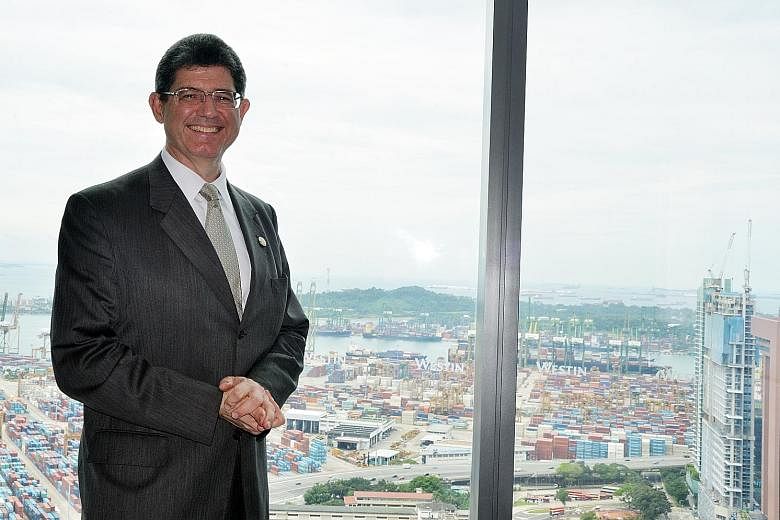Nearly one year into his role as managing director and chief financial officer of the World Bank, Mr Joaquim Levy says his proudest achievement is the financial innovation he has introduced to raise private capital to fund projects.
Under his leadership, the International Development Association (IDA), the arm of the bank that helps the poorest countries, will be launching bonds for the first time since its founding in 1960.
"I'm very happy with what we have achieved, that is reinforcing and bringing private capital to reinforce the work of IDA, the arm that looks at the poorest countries, including several in Asia such as Myanmar, Cambodia, Laos and Bangladesh," said Mr Levy in an interview with The Straits Times.
He was in Singapore last week to speak at the seventh World Bank-Singapore Infrastructure Finance Summit, alongside Singapore's Deputy Prime Minister Tharman Shanmugaratnam.
Mr Levy, previously Brazil's finance minister, said that due to the bonds, he was targeting an increase of 50 per cent in the volume of programmes the IDA will fund.
The IDA traditionally depended on contributions from countries, receiving US$52.1 billion (S$72.6 billion) in its last round of funding.
Mr Levy said that the bonds - estimated to pull in billions from institutional investors - were given a top-tier triple-A credit rating last month by ratings agencies Moody's and Standard and Poor's. He is confident the bonds will be welcomed by many institutional investors.
"More and more institutional investors are concerned, they want projects that create long-term streams, but they want to see money helping countries that have a lot of potential, like a young population, to really start to grow," he said.
"These are bonds that will pay good money. Many people now want to know what their money is doing... it's almost an impact bond, one that pays market rates, it's a very attractive combination."
Mr Levy's interest in financial innovation comes from his years as an asset manager in Brazil. From 2010 to 2014, he was chief executive of Bradesco Asset Management, one of Brazil's largest investment managers, handling assets of more than US$130 billion. He has also been credited with helping Rio de Janeiro state get an investment-grade credit rating in 2007.
Singapore has a good partnership with the World Bank in developing infrastructure debt as a new asset class, and the challenge ahead is to develop instruments that bridge the abilities of banks and institutional investors, he said.
"One interesting challenge is to get models or instruments that bring together the ability of banks to take short-term risk, with the willingness of funds like pension funds to take long-term risks. If you can make this bridge, you make an important step forward to create this new asset class."
While infrastructure debt is estimated to make up less than 0.2 per cent of global assets under management by institutional investors, Mr Levy cited the growth of emerging markets' sovereign debt asset class, adding that the infrastructure debt market could also be close to take-off. "About 25 years ago, there was no emerging market, developing countries did not go to the market. We took a number of steps, and the World Bank helped with that, and this market opened... We are getting closer to a time when we will see a surge in this market and create a new market like the sovereign debt of emerging markets."


